- Home
- Aer-ki Jyr
Star Force: Temple Wars Page 3
Star Force: Temple Wars Read online
Page 3
“Something we’re working on in the long term,” Davis told Plausious with a hint of apology as he realized he had defaulted back to the Sha’kier terminology. “One of those secrets we keep from each other.”
“Wielding the life energy requires synergy with it,” the Gahana continued. “That is the only point of access. I do not know how one would transform into another, but to modulate it into a weapon would require direct alteration.”
“Would that not kill the synthoids?” Plausious asked.
“We have developed limited shielding. It’s theoretically possible…”
“It can be imbued into technology,” Davis interrupted, cringing.
“How do you know this?” Apollo demanded.
“We have encountered the remnants of a race that shall go nameless who can manipulate the Saiolum. I am told they were wiped out a billion years ago, but their enemies remain and if word of their survival gets out this galaxy is going to get even bloodier than it is now. So don’t ask me to elaborate further. But I do know that they can manipulate objects to have a residual effect on the Saiolum. If the Tri’vey works in a similar way, there might not be any synthoids within the object.”
“Interesting,” Plausious said, looking down at Davis.
“Indeed,” Apollo echoed. “We can perceive all three energies, but we can only interact with our own in ways that I will not elaborate on, but I believe whatever was done to create this toxicity would require such manipulation of the Tri’vey. I have no theory on the transformation of the Tri’to, nor how to transform the Tri’vey into the Tri’se.”
“When you witnessed spawnings, was there a surge of the three energies?”
“Only the Tri’to, and it was barely noticeable.”
“Can you see it in us?”
“No. We can only perceive dense amounts, such as around a planetary ecology or a Heidoor.”
“What does the Galactic Core look like?”
“We cannot perceive it from this distance. At closer range we would sense a hum to it, but I have no knowledge of the area around the source of the toxicity.”
“Then you’re not well attuned,” Davis said, scratching his chin as he thought. “But the fact that you can sense all three suggests that you would be the most likely candidate to find a way to transition one energy to another.”
“I concur,” Apollo said. “That is why I believe there is at least one other of our kind out there.”
“Are any of the Gahana unaccounted for?” Plausious asked.
“We do not know the location the others fled to.”
“I was referring to exiles.”
“We do not exile our own, Neofan. We have no internecine.”
“Never?”
“Never,” Apollo confirmed.
“Then why would another synthoid race be trying to kill you?”
“I have no data to speculate on. But Gahana do not harm Gahana. It is in our instinct to cooperate.”
“And none have ever chosen to do otherwise?”
“Not to my knowledge. And the odds of a traitor being responsible for the creation of this toxicity is beyond negligible. We do not have the capability of creating something like this.”
“What do your instincts say to do if you met others like you?”
“I do not know. We are all that we have ever known. Another defies even speculative analysis.”
“You said this toxicity doesn’t affect the PanNari because they’re not fully part of the Tri’vey,” Davis noted. “How would it have affected the Gahana shortly after your spawning?”
“The same. Our construction has not differed.”
Plausious glanced at Davis, and even without telepathy he knew what he was thinking. “A preemptive trap?”
“If there are multiple Endgames, and they all spawn a synthoid race, this toxicity will kill any new ones that arise in this galaxy,” he said, feeling the pit in his stomach drop.
“We existed for a far longer time before the toxicity began than after. We never encountered any others like us. If your Endgame is real, it is an extremely long process.”
“Not a process, a challenge,” Plausious said, feeling the spike in his head shift again. “And this weapon is to deny the reward for victory.”
“Stability,” Davis said, looking up at the Gahana. “They help secure territory against the darkside surges that keep coming and coming. Almost as if they are to buy time for another Endgame scenario to run its course. How strong are the Tri’se races?”
“We have never fought them, nor seen them fight, but their ability to move across space operates differently than our own. Their charted speeds are higher than yours if applied to intergalactic jumps.”
“And yours?” Davis asked.
“Our transit system requires infrastructure, but it is faster than we observed the Tri’se races.”
“Did you ever go out to them?” Plausious asked.
“On occasion we met them halfway. We were warned about traveling beyond the light range.”
“What is that?”
“The point where the photons traveling between galaxies are so dispersed they can no longer be seen.”
Davis frowned. “We can see the other galaxies from here.”
“Our photo receptors are designed for light. The Tri’se races have no such ability. They measure the light as we measure the toxicity. The light range is the point where it no longer causes them noticeable damage.”
“What did they tell you of themselves?” the Director pressed.
“Not to try and reach them was their initial warning, but over time they began to discuss safe passage within our galaxies, which we naturally allowed so long as they didn’t interfere with the denizens.”
“Why did they want to travel here?”
“Resource collection. Primary matter that had a very high nuclear density and a nearly depleted photonic count. Some exotic weapons can be produced from such material, so we limited what they could harvest, but they requested far less than our imposed limits.”
“You couldn’t see them, could you?”
“Not with light. But we could sense their Tri’se, and it was far more visible than the Tri’to, either due to density or perhaps our sensitivity to it is not equal. They had thousands of individuals within their vessel.”
“How did they communicate?” Plausious asked.
“Telepathic energy is not photonic,” Apollo explained. “And for some reason we were able to understand them automatically. We believe it is an aspect of our construction and not their familiarity with our race.”
“Did you ever discuss the lifesprings?” Davis asked.
“You believe they could be a superior form to us?” Apollo asked.
“I’m trying to grasp at anything that makes even a little sense to figure out what the hell is going on,” he answered honestly. “If you are guardians meant to give us cover, what is the second phase? Or are we the second phase and they’re phase 1…or maybe they’re phase 3…or maybe it’s not phases at all and a parallel track. If you can see all three energies, it suggests a connection to the Tri’se in your mission.”
“We also believe this, but they wanted little contact.”
“Did they say what’s out there?”
“We asked. They said not to ask what was beyond the light line, only to fear it.”
“Fear as in not go there, or fear it coming here?”
“They explained they can only come here in small numbers, in protective cocoons. It is the same for Humans traveling inside stars.”
Davis frowned. “You can survive in stars without a ship?”
“For a short time. They cannot even survive the cold of the outer regions of our star systems.”
“So they say,” Plausious cautioned.
“Did anything ever float in from out there that you could analyze?”
“Nothing with the physical makeup they suggested. It would have deteriorated before we could recover it. But there was oth
er material of unusual elemental structure occasionally recovered. We could draw no conclusions.”
The Reignor pondered that, looking off to the side as he tried to envision what material coming out of the dark places could mean, and perhaps prodding his preborn knowledge into another revelation, when he noticed the Ren’mak yawning on his shoulder.
He stared at him, exchanging a few telepathic thoughts, and realizing everything they were discussing was beyond his understanding.
The imagined landscape of the galaxy the Gahana had spawned in came back to him, with the newly created race in their pool of liquid metal amidst the destruction of every advanced civilization, and suddenly he felt very protective of the Ren’mak. Was that to be this galaxy’s fate if they achieved the Endgame?
His head began to hurt, and hurt a lot, enough for him to take a knee as Davis stepped over and reached to place a hand on his arm.
“Leave him be,” the Gahana ordered, extending his hand into a long tendril that spread out into a curtain blocking Davis’s touch. “His preborn knowledge is producing another revelation.”
“No,” Plausious moaned, holding his head. “It’s not.”
The Ren’mak squawked an old squawk. Something he hadn’t said since learning the Star Force language. It was a signal they had worked out early on, and it was a warning of danger as he sensed Plausious in pain.
Frustration and anger boiled up in the normally calm Neofan…then something snapped in him and he stood up, inadvertently throwing an Essence wave out that knocked Davis back but missed the Ren’mak as if it was an extension of his own body. The wave gently rocked the larger Gahana as Plausious decided he no longer cared.
And when he decided that, the spike in his head disappeared in full, and he breathed in the first free breath he’d had since running for his life on the Hadarak planet.
“My apologies,” he said to Davis. “That wasn’t intentional.”
“What have you learned, Neofan?” the Gahana asked. “I can no longer read your thoughts.”
“I am tired of being used as a pawn,” he said, realizing the nanites had been destroyed. “By the Neofan. By the Hadarak. By you. By the universe. I no longer care about the Endgame or what it is. A storm is coming. How, when, where, why…is irrelevant. If you are the spawn of a previous Endgame, what did it serve those who triggered it? They were destroyed. Expended. And the universe transitioned into another stage of its pre-arranged theatre. The universe uses the Natural Code as a foil, but what it truly is is those of us put here with no knowledge of where we came from or what we’re supposed to do trying to survive against all the universe subjects us to. And if the Endgame is going to destroy us, we should not pursue it. We should focus on surviving it and reject the universe’s ongoing…experiment.”
“And?” Davis pressed.
“If we are to die fighting, it should be a fight of our choosing. Not one assigned to us by instinct, mission, or preborn knowledge. We should die as blue blades,” he said, knowing that Davis would catch the reference. “That is the only true freedom we can achieve if the universe is designed to continually destroy and replace us. If our preborn knowledge is guiding us to the Endgame, we can choose to use it for our own purposes…as you have.”
“I still don’t think mine is preborn,” Davis hedged.
“Nevertheless, you have the skill and have used it far better than I have. I am continually amazed that someone so young has accomplished so much, and going forth I will endeavor to use mine to assist yours,” he said, looking away from Davis to the Gahana. “I am sorry, but you must stay where you are.”
“Explain,” Apollo demanded.
“You deserve to be freed from your prison, and if another Endgame race emerges they deserve to live. The weapon killing you needs to be destroyed, but if we do so now we will draw an even greater enemy here to investigate why their mechanism ceased functioning. We need to fortify our position and safeguard the vulnerable. They are not expendable.”
“We have preserved many such races here,” Apollo said. “We do not view them as expendable.”
“Those who pursue the Endgame do. It is the storm we must weather. It cannot be the objective. And superior races do not guarantee them being…lightside,” he said, finding the phrase ‘Natural Code’ no longer held the meaning it once had. “The Endgame could spawn a synthoid red blade race. And it may have already.”
“We are making a lot of assumptions,” Davis admitted. “But that’s how I work through problems, then pull back to reality. And the reality is we don’t know what’s going on, except what we have experienced. The lightside is hunted. And the larger the darkside enemies we take down, the more others will be drawn to us…whether it be because of the Endgame or not. And the Gahana are radically advanced. There are others out in the dark places. We have the apocalypse monsters to worry about, the Hadarak in multiple galaxies probably taking orders from the Dotra, who may have other armies up their sleeve to throw against us. The Neofan here and there. The Zak’de’ron who may show back up someday. The Bond of Resistance begging for leadership and not being trustworthy enough to be an asset. And a lot more other threats and potential threats I could add, plus however many more are out there lurking that I don’t know of.”
“Despair will not avail you,” Apollo warned.
“It’s not despair,” Plausious corrected. “It’s a prelude to downcentering.”
“Well said, my ancient apprentice,” Davis said appreciatively. “I still want to learn as much as you can give me about the circumstances of your spawning and try to figure out as much of the Endgame that we may or may not be facing, but at the end of the day it all comes down to the ground we stand on, for this is where we fight, and where we exist. Everything else is just the gallery in the sky where we are not.”
“I do not understand your assumed conclusion.”
“We watch each other’s backs and figure it out as we go,” Davis said pithily.
Plausious looked at the Ren’mak and reached up to scratch its head. “I can now concur.”
“Many biologicals have thought the same and perished,” Apollo said warily. “You lack a full mission, and without it how do you plan to succeed against a metric you cannot scan other than by blind luck?”
“You’ve said you do not fully understand your mission, so how do you do it?”
“I did not say that. I said we cannot fully articulate it. Our purpose is to safeguard. That has always been clear. Where it leads is uncertain, but the present work to be done is not ambiguous. Biologicals, even the hive minds, operate erratically, and your one divining skill you admittedly turn away from in your preborn knowledge. If it is leading you to the Endgame, why would you diverge from it?”
Plausious glanced at Davis, then looked back up at the Gahana. “Because it doesn’t feel right.”
“On what is this feeling based?”
“A sense that transcends preborn knowledge and instinct. I can confirm it is real, but I cannot quantify it.”
“Duplicity,” Davis said, more to Plausious. “They’ve always been grossly dominant, and have probably never been in a position to be lied to.”
“We have heard many lies from biologicals,” Apollo clarified.
“But your knowledge was superior. You didn’t have to trust them, and have that trust betrayed. We both have. And once you realize you’ve been manipulated, you never forget that feeling. And if you were spawned into a devastated galaxy, I’m also starting to get the feeling the Endgame might lead to our doom rather than help us survive it.”
“Destroy the toxicity and we will help you survive.”
“It’s on my to-do list,” Davis promised. “Right now the most I can hope to get is a decent picture of the object.”
“I can do it,” Plausious said firmly, staring at Apollo. “But I won’t. The best chance we have of survival is to play dumb and secure our footholds. Taking down that generator and releasing you would send a signal to whoever put it there,
and if it is to deny any future synthoid races from spawning, they will monitor it and replace it…as well as coming to find whoever or whatever took it down. We have to pretend we don’t know, and you have to wait until the time is right.”
“We have waited for more than 3 billion years. Our patience is not in question, but Star Force has given us our first glimpse into the source of this toxicity, and we would be remiss for not pursuing it.”
“But you can’t. We have to. And we have other priorities at the moment. Tasks must be done first, and while there is much I wish to learn from you, my near future path is now clear and it does not lead to the Galactic Core. He may have further questions for you, but I am done here.”
“What exactly are you going to do?” Davis asked Plausious, sensing a shift in what he had discussed earlier.
“Defy the Natural Order…”
4
July 2, 158393
Zykres Nebula (Shoveini Kingdom)
Eta Fermi Temple
Plausious had split up with Davis partway on their trip back from the Maty. The Director had his business to attend to and the Reignor had his, with a Star Force cargo ship being diverted to carry him out to one of the Temples. From there he had assured Davis that he could make his own way through the network wherever he wanted, for there were safeguards against total blockage of the Essence portals, and if one knew the system well enough you could come out wherever you wanted.
Those high level codes were not widely shared throughout the Bond of Resistance, and since the Neofan had been the largest contributor to the construction of the Temple network, they had, of course, incorporated some of their own backdoors into the systems so nobody could completely lock them out of their own constructions…nor could they divert them to preferred entry points where the individuals arriving could be killed instantly.
This was why Star Force had such a difficult time keeping House Atriark out when they invaded, but resourceful as always, they had managed to do some reprogramming and rebuilding of their own in certain areas to take control over most of the maintenance portals.
But there were others never before activated kept in reserve. Ones that the invading Neofan had not used, and Plausious knew why after reviewing the detailed battle history Davis had given him. They had gained access to 18 of the Star Force-occupied Temples, briefly, but had only been able to take and hold 7 of them. Since that time Star Force had taken back two more using clever strategy to get inside, but each trick they used House Atriark learned from, and it seemed they didn’t have anything left to get at the 5 captured ones or the three that were originally owned by House Atriark.

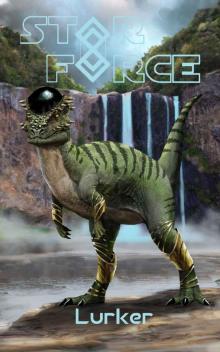 Lurker
Lurker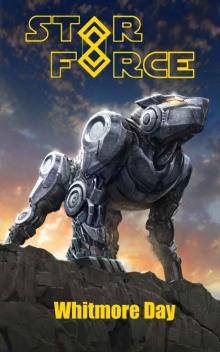 Whitmore Day
Whitmore Day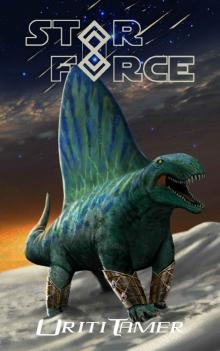 Uriti Tamer
Uriti Tamer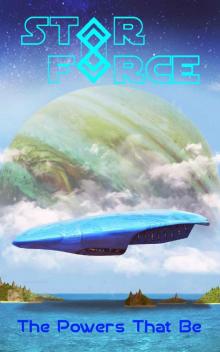 The Powers That Be
The Powers That Be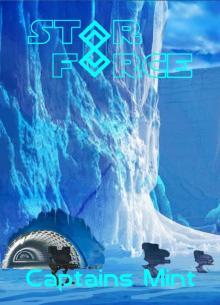 Star Force: Captains Mint (Star Force Universe Book 70)
Star Force: Captains Mint (Star Force Universe Book 70)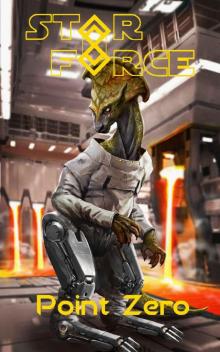 Point Zero
Point Zero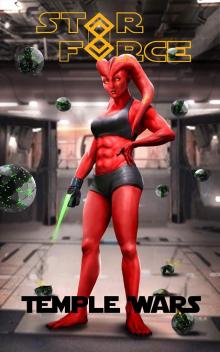 Star Force: Temple Wars
Star Force: Temple Wars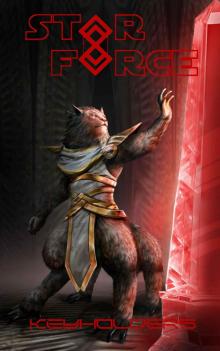 Star Force: Keyholders (Star Force Universe Book 61)
Star Force: Keyholders (Star Force Universe Book 61)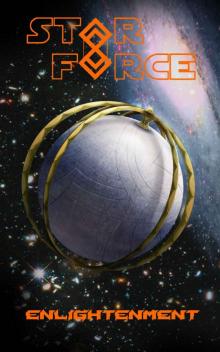 Enlightenment
Enlightenment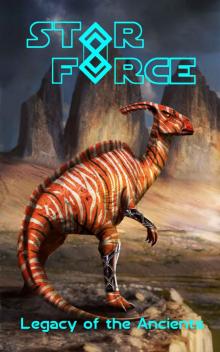 Star Force: Legacy of the Ancients (Star Force Universe Book 59)
Star Force: Legacy of the Ancients (Star Force Universe Book 59)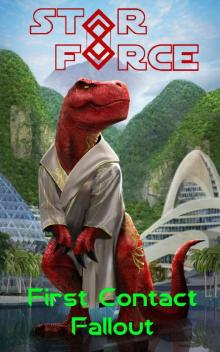 First Contact Fallout
First Contact Fallout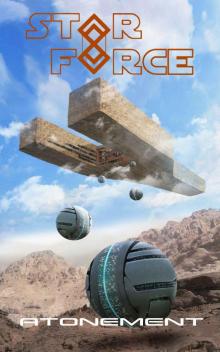 Star Force- Atonement
Star Force- Atonement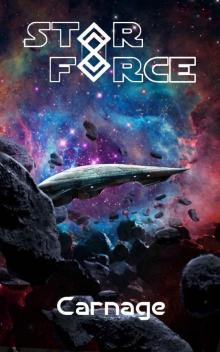 Carnage
Carnage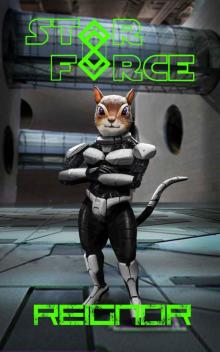 Reignor
Reignor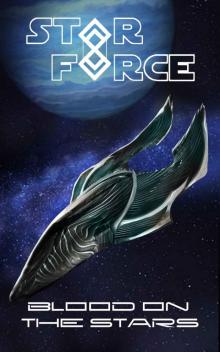 Blood on the Stars
Blood on the Stars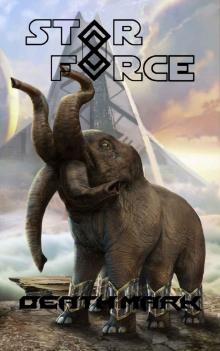 Star Force: Death Mark (Star Force Universe Book 67)
Star Force: Death Mark (Star Force Universe Book 67)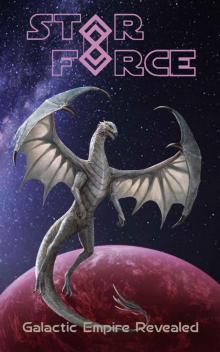 Star Force: Galactic Empire Revealed (Star Force Universe Book 63)
Star Force: Galactic Empire Revealed (Star Force Universe Book 63) Vargemma
Vargemma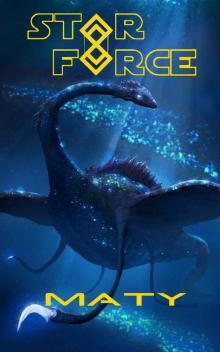 Maty
Maty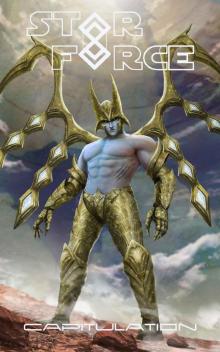 Star Force: Capitulation (Star Force Universe Book 73)
Star Force: Capitulation (Star Force Universe Book 73)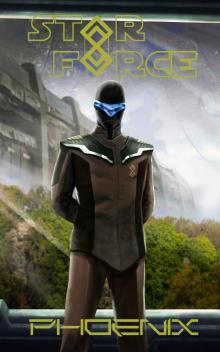 Star Force: Phoenix (Star Force Universe Book 62)
Star Force: Phoenix (Star Force Universe Book 62)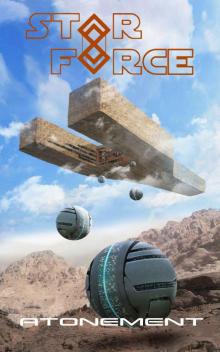 Star Force: Atonement (Star Force Universe Book 68)
Star Force: Atonement (Star Force Universe Book 68)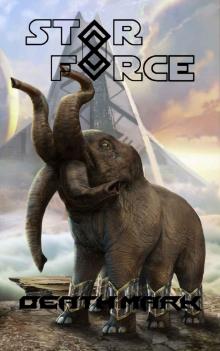 Death Mark
Death Mark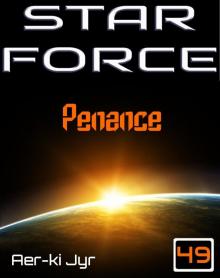 Star Force: Penance (SF49)
Star Force: Penance (SF49)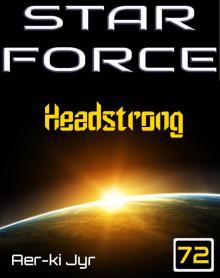 Star Force: Headstrong (SF72)
Star Force: Headstrong (SF72)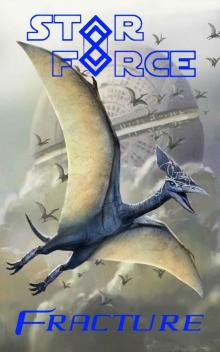 Star Force: Fracture (Star Force Universe Book 47)
Star Force: Fracture (Star Force Universe Book 47) Star Force: Eviction (SF33)
Star Force: Eviction (SF33)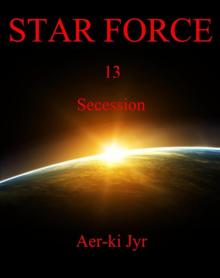 Star Force: Secession (SF13)
Star Force: Secession (SF13)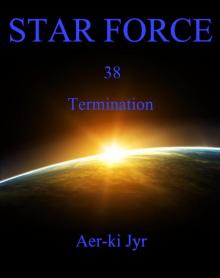 Star Force: Termination (SF38)
Star Force: Termination (SF38)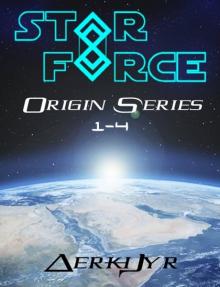 Star Force: Origin Series Box Set (1-4)
Star Force: Origin Series Box Set (1-4)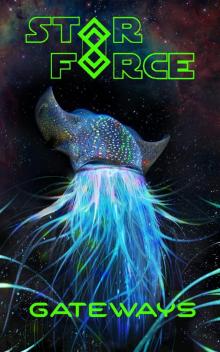 Gateways
Gateways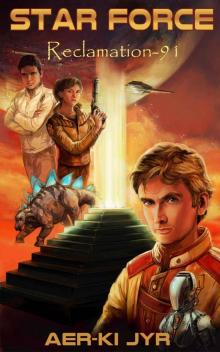 Star Force: Reclamation (SF91) (Star Force Origin Series)
Star Force: Reclamation (SF91) (Star Force Origin Series) Star Force: Excalibur (Star Force Universe Book 41)
Star Force: Excalibur (Star Force Universe Book 41)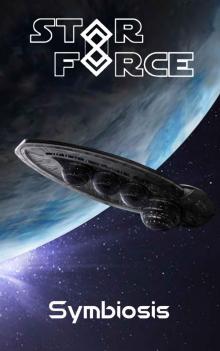 Star Force: Symbiosis (Star Force Universe Book 72)
Star Force: Symbiosis (Star Force Universe Book 72)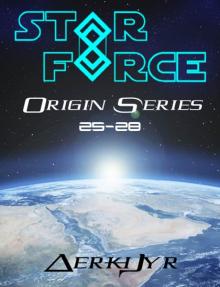 Star Force: Origin Series Box Set (25-28)
Star Force: Origin Series Box Set (25-28)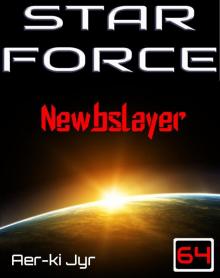 Star Force: Newbslayer (SF64)
Star Force: Newbslayer (SF64)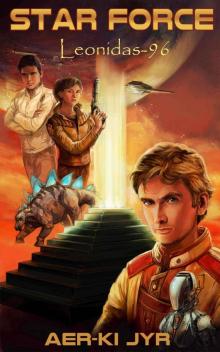 Star Force: Leonidas (SF96) (Star Force Origin Series)
Star Force: Leonidas (SF96) (Star Force Origin Series)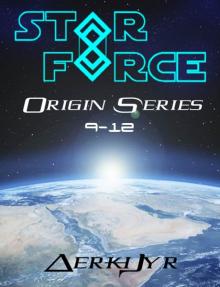 Star Force: Origin Series Box Set (9-12)
Star Force: Origin Series Box Set (9-12)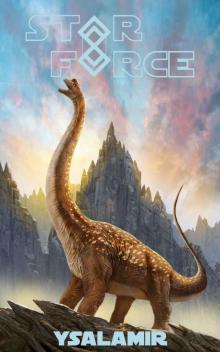 Star Force: Ysalamir (Star Force Universe Book 54)
Star Force: Ysalamir (Star Force Universe Book 54)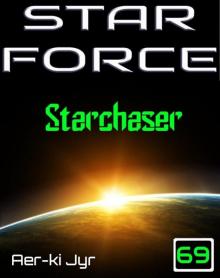 Star Force: Starchaser (SF69)
Star Force: Starchaser (SF69)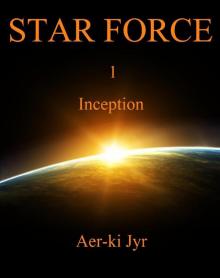 Star Force: Inception (SF1)
Star Force: Inception (SF1)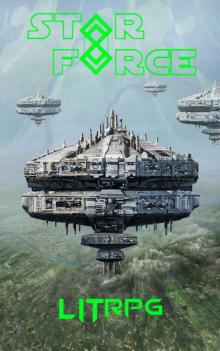 Star Force: LITrpg (Star Force Universe Book 64)
Star Force: LITrpg (Star Force Universe Book 64)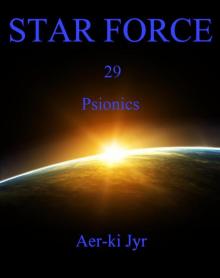 Star Force: Psionics (SF29)
Star Force: Psionics (SF29)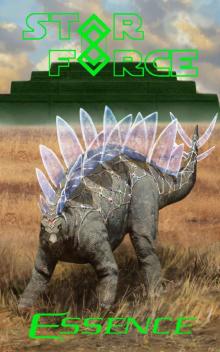 Star Force: Essence (Star Force Universe Book 51)
Star Force: Essence (Star Force Universe Book 51)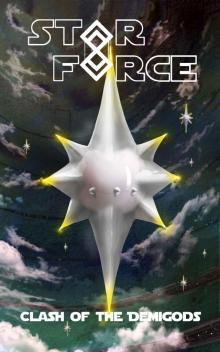 Star Force: Clash of the Demigods (Star Force Universe Book 60)
Star Force: Clash of the Demigods (Star Force Universe Book 60) Star Force: Zen'zat (SF14)
Star Force: Zen'zat (SF14)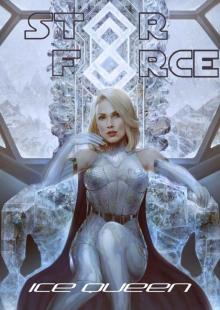 Star Force: Ice Queen
Star Force: Ice Queen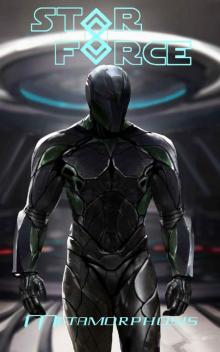 Metamorphosis
Metamorphosis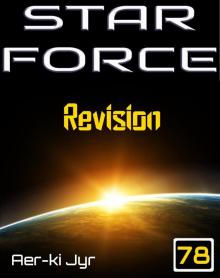 Star Force: Revision (SF78)
Star Force: Revision (SF78)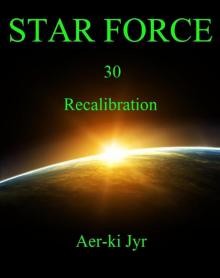 Star Force: Recalibration (SF30)
Star Force: Recalibration (SF30)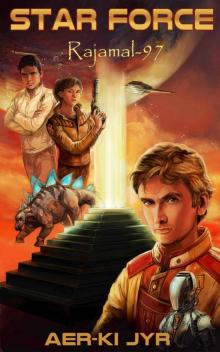 Star Force: Rajamal (SF97) (Star Force Origin Series)
Star Force: Rajamal (SF97) (Star Force Origin Series)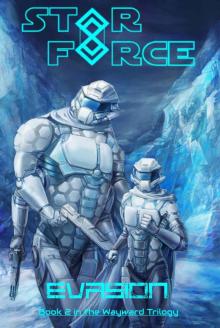 Star Force: Evasion (Wayward Trilogy Book 2)
Star Force: Evasion (Wayward Trilogy Book 2)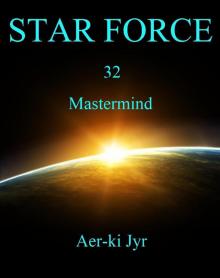 Star Force: Mastermind (SF32)
Star Force: Mastermind (SF32)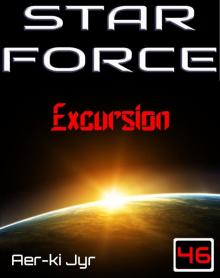 Star Force: Excursion (SF46)
Star Force: Excursion (SF46)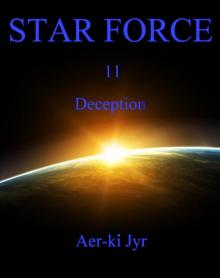 Star Force: Deception (SF11)
Star Force: Deception (SF11)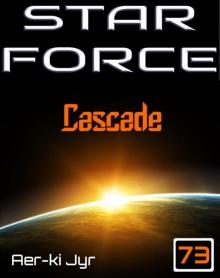 Star Force: Cascade (SF73)
Star Force: Cascade (SF73)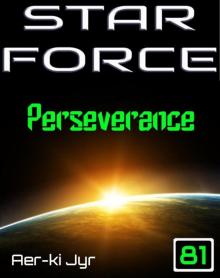 Star Force Perseverance (SF81) (Star Force Origin Series)
Star Force Perseverance (SF81) (Star Force Origin Series)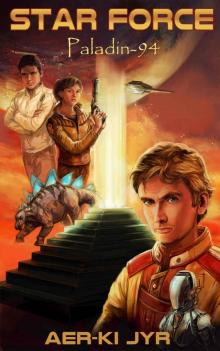 Star Force: Paladin (SF94) (Star Force Origin Series)
Star Force: Paladin (SF94) (Star Force Origin Series)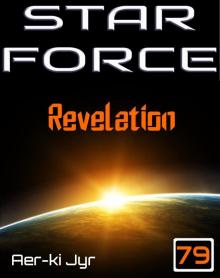 Star Force: Revelation (SF79)
Star Force: Revelation (SF79)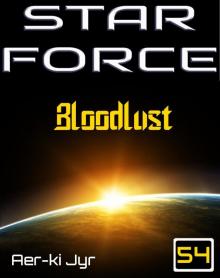 Star Force: Bloodlust (SF54)
Star Force: Bloodlust (SF54)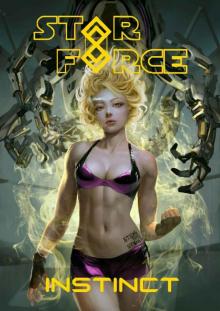 Star Force: Instinct (Star Force Universe Book 49)
Star Force: Instinct (Star Force Universe Book 49) Star Force: Intimidation (SF17)
Star Force: Intimidation (SF17)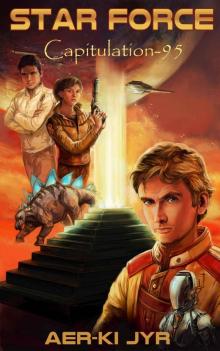 Star Force: Capitulation (SF95) (Star Force Origin Series)
Star Force: Capitulation (SF95) (Star Force Origin Series)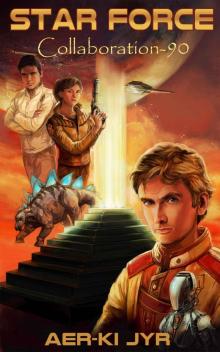 Star Force: Collaboration (SF90) (Star Force Origin Series)
Star Force: Collaboration (SF90) (Star Force Origin Series)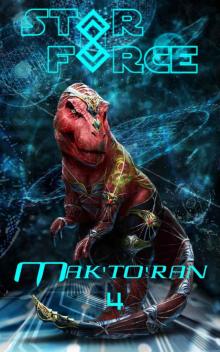 Star Force: Mak'to'ran (4)
Star Force: Mak'to'ran (4)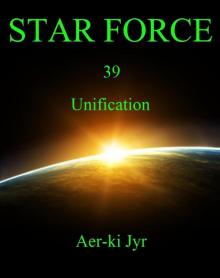 Star Force: Unification (SF39)
Star Force: Unification (SF39)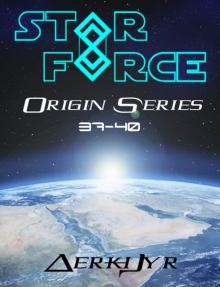 Star Force: Origin Series Box Set (37-40)
Star Force: Origin Series Box Set (37-40)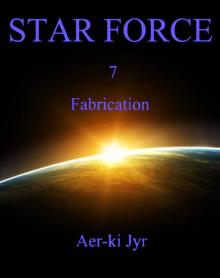 Star Force: Fabrication (SF7)
Star Force: Fabrication (SF7)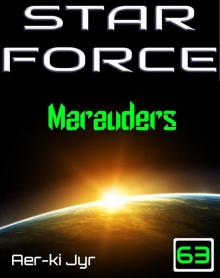 Star Force: Marauders (SF63)
Star Force: Marauders (SF63)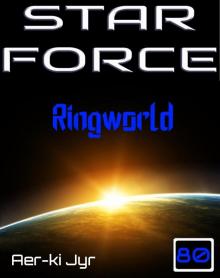 Star Force: Ringworld (SF80)
Star Force: Ringworld (SF80)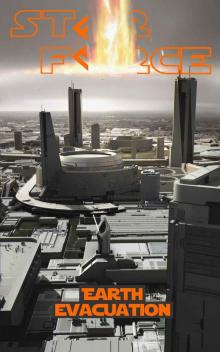 Star Force: Earth Evacuation
Star Force: Earth Evacuation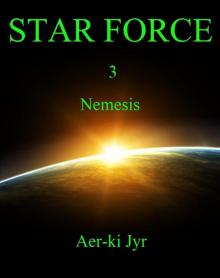 Star Force: Nemesis (SF3)
Star Force: Nemesis (SF3)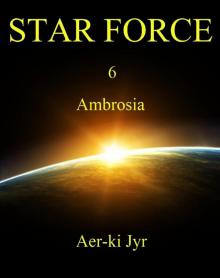 Star Force: Ambrosia (SF6)
Star Force: Ambrosia (SF6)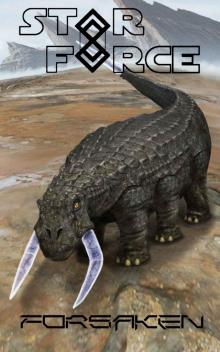 Star Force_Forsaken
Star Force_Forsaken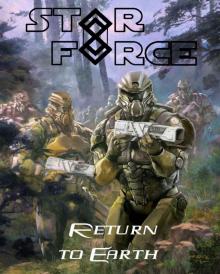 Star Force: Return to Earth
Star Force: Return to Earth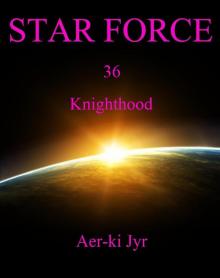 Star Force: Knighthood (SF36)
Star Force: Knighthood (SF36)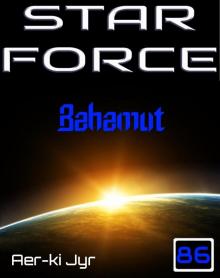 Star Force: Bahamut (SF86) (Star Force Origin Series)
Star Force: Bahamut (SF86) (Star Force Origin Series)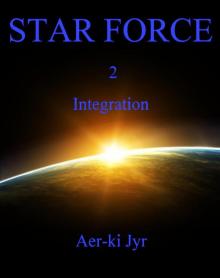 Star Force: Integration (SF2)
Star Force: Integration (SF2) Star Force: Benefactor (SF19)
Star Force: Benefactor (SF19)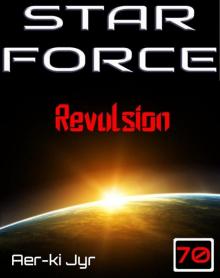 Star Force: Revulsion (SF70)
Star Force: Revulsion (SF70)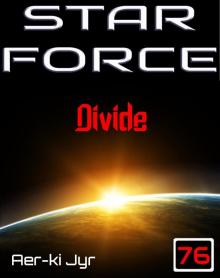 Star Force: Divide (SF76) (Star Force Origin Series)
Star Force: Divide (SF76) (Star Force Origin Series)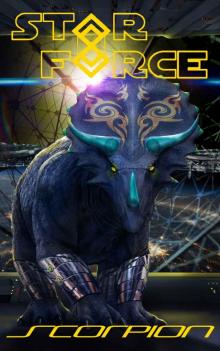 Star Force: Scorpion (Star Force Universe Book 42)
Star Force: Scorpion (Star Force Universe Book 42)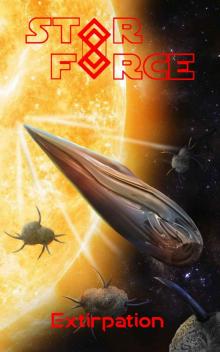 Star Force: Extirpation (Star Force Universe Book 56)
Star Force: Extirpation (Star Force Universe Book 56) Star Force: Shiva (SF98) (Star Force Origin Series)
Star Force: Shiva (SF98) (Star Force Origin Series)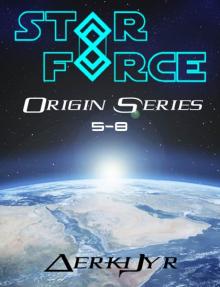 Star Force: Origin Series Box Set (5-8)
Star Force: Origin Series Box Set (5-8) Star Force: Disarmament (SF10)
Star Force: Disarmament (SF10)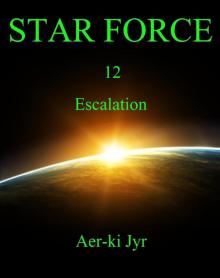 Star Force: Escalation (SF12)
Star Force: Escalation (SF12)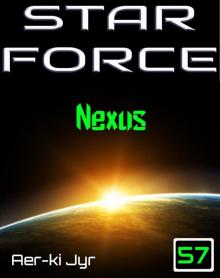 Star Force: Nexus (SF57)
Star Force: Nexus (SF57)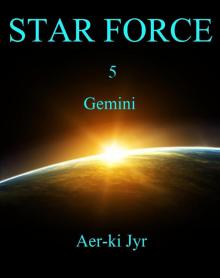 Star Force: Gemini (SF5)
Star Force: Gemini (SF5)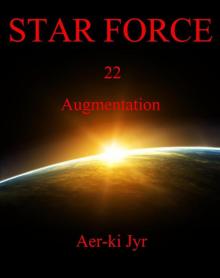 Star Force: Augmentation (SF22)
Star Force: Augmentation (SF22)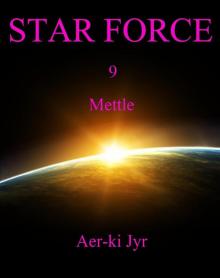 Star Force: Mettle (SF9)
Star Force: Mettle (SF9)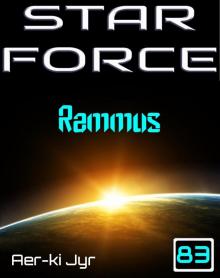 Star Force: Rammus (SF83) (Star Force Origin Series)
Star Force: Rammus (SF83) (Star Force Origin Series)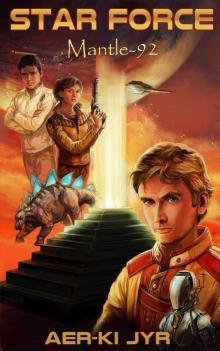 Star Force: Mantle (SF92) (Star Force Origin Series)
Star Force: Mantle (SF92) (Star Force Origin Series)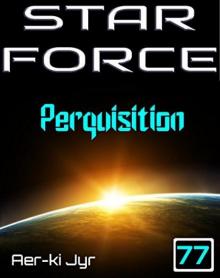 Star Force: Perquisition
Star Force: Perquisition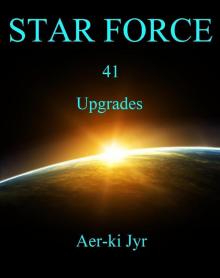 Star Force: Upgrades (SF41)
Star Force: Upgrades (SF41)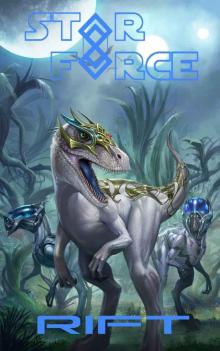 Star Force: Rift
Star Force: Rift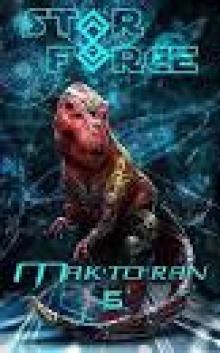 Star Force: Mak'to'ran (5)
Star Force: Mak'to'ran (5)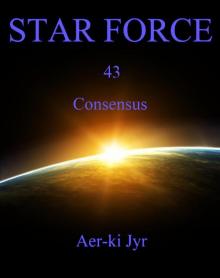 Star Force: Consensus (SF43)
Star Force: Consensus (SF43)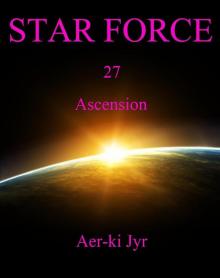 Star Force: Ascension (SF27)
Star Force: Ascension (SF27)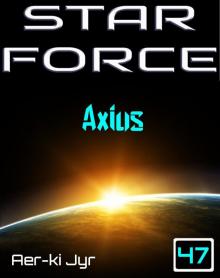 Star Force: Axius (SF47)
Star Force: Axius (SF47)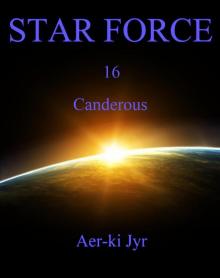 Star Force: Canderous (SF16)
Star Force: Canderous (SF16)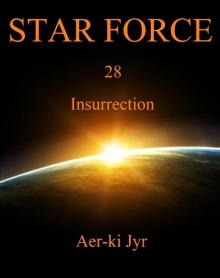 Star Force: Insurrection (SF28)
Star Force: Insurrection (SF28)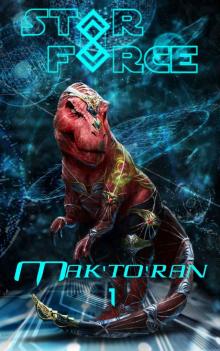 Star Force: Mak'to'ran (1)
Star Force: Mak'to'ran (1)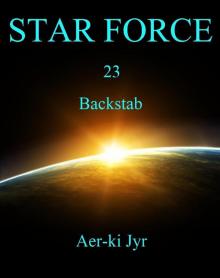 Star Force: Backstab (SF23)
Star Force: Backstab (SF23)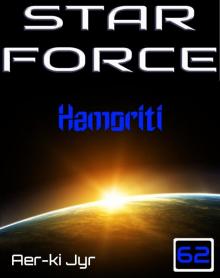 Star Force: Hamoriti (SF62)
Star Force: Hamoriti (SF62)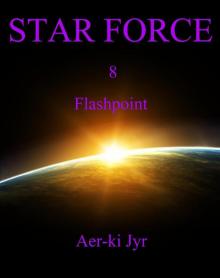 Star Force: Flashpoint (SF8)
Star Force: Flashpoint (SF8) Star Force: Aquatics (SF31)
Star Force: Aquatics (SF31)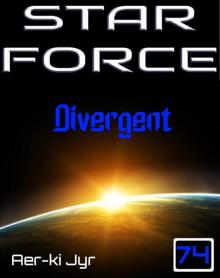 Star Force: Divergent (SF74)
Star Force: Divergent (SF74)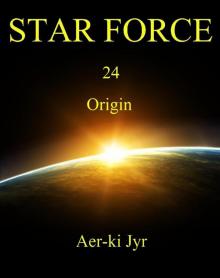 Star Force: Origin (SF24)
Star Force: Origin (SF24)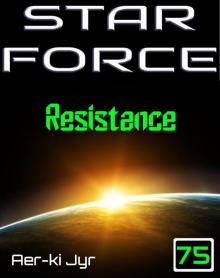 Star Force 75: Resistance
Star Force 75: Resistance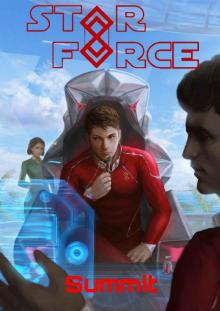 Star Force: Summit (Star Force Universe Book 44)
Star Force: Summit (Star Force Universe Book 44)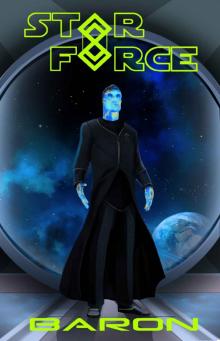 Star Force: Baron (Star Force Universe Book 43)
Star Force: Baron (Star Force Universe Book 43)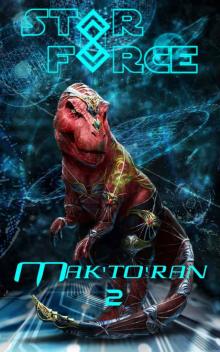 Star Force: Mak'to'ran (2)
Star Force: Mak'to'ran (2)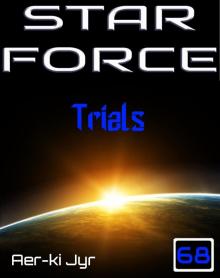 Star Force: Trials (SF68)
Star Force: Trials (SF68)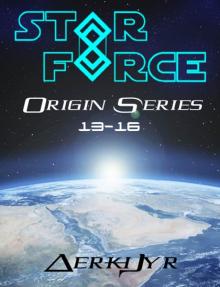 Star Force: Origin Series Box Set (13-16)
Star Force: Origin Series Box Set (13-16)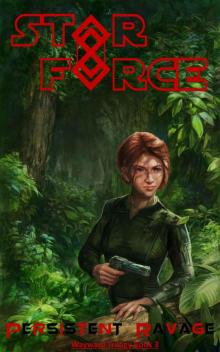 Star Force: Persistent Ravage (Wayward Trilogy Book 3)
Star Force: Persistent Ravage (Wayward Trilogy Book 3)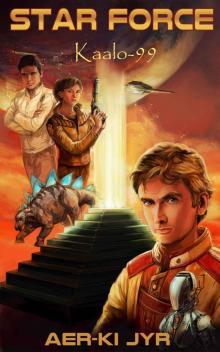 Star Force: Kaalo (SF99) (Star Force Origin Series)
Star Force: Kaalo (SF99) (Star Force Origin Series)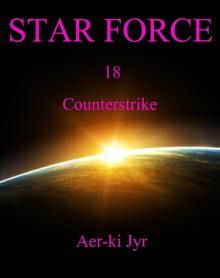 Star Force: Counterstrike (SF18)
Star Force: Counterstrike (SF18) Star Force: Foothold (SF25)
Star Force: Foothold (SF25)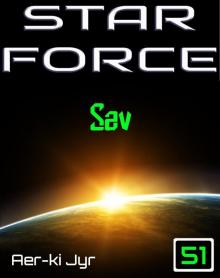 Star Force: Sav (SF51)
Star Force: Sav (SF51)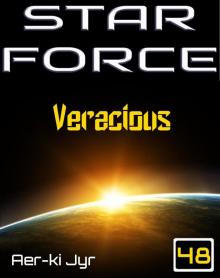 Star Force: Veracious (SF48)
Star Force: Veracious (SF48) Star Force: Allegiance (SF21)
Star Force: Allegiance (SF21)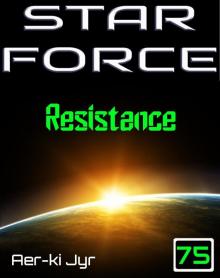 Star Force: Resistance (SF75)
Star Force: Resistance (SF75)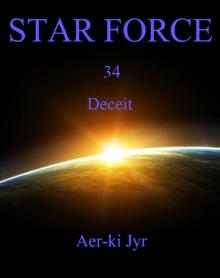 Star Force: Deceit (SF34)
Star Force: Deceit (SF34)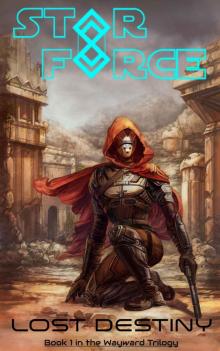 Star Force: Lost Destiny (Wayward Trilogy Book 1)
Star Force: Lost Destiny (Wayward Trilogy Book 1)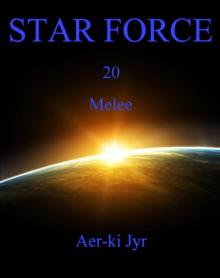 Star Force: Melee (SF20)
Star Force: Melee (SF20)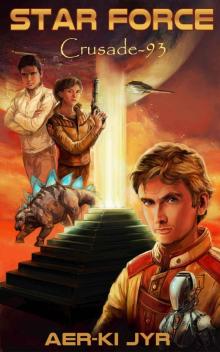 Star Force: Crusade (SF93) (Star Force Origin Series)
Star Force: Crusade (SF93) (Star Force Origin Series)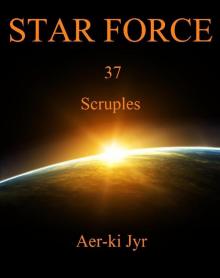 Star Force: Scruples (SF37)
Star Force: Scruples (SF37)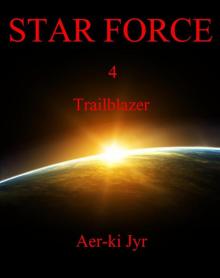 Star Force: Trailblazer (SF4)
Star Force: Trailblazer (SF4) Star Force: Commando (SF40)
Star Force: Commando (SF40)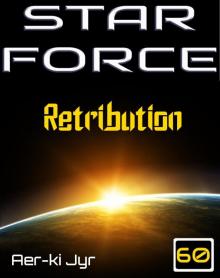 Star Force: Retribution (SF60)
Star Force: Retribution (SF60)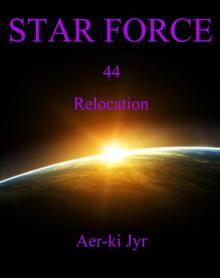 Star Force: Relocation (SF44)
Star Force: Relocation (SF44)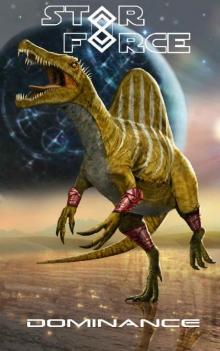 Star Force: Dominance (Star Force Universe Book 50)
Star Force: Dominance (Star Force Universe Book 50) Star Force: Death Knell (SF26)
Star Force: Death Knell (SF26) Apex
Apex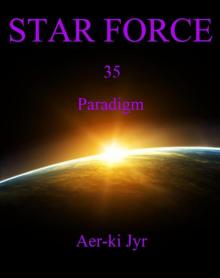 Star Force: Paradigm (SF35)
Star Force: Paradigm (SF35)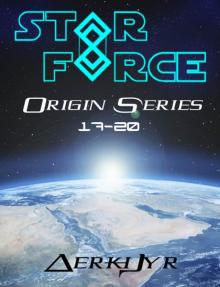 Star Force: Origin Series (17-20)
Star Force: Origin Series (17-20)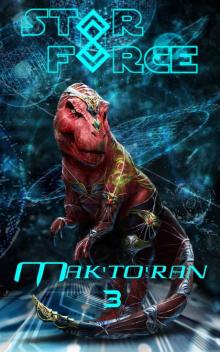 Star Force: Mak'to'ran (3)
Star Force: Mak'to'ran (3) Star Force: Colonization (SF15)
Star Force: Colonization (SF15)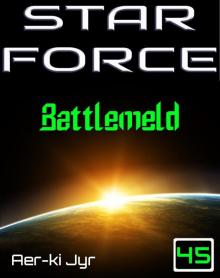 Star Force: Battlemeld (SF45)
Star Force: Battlemeld (SF45)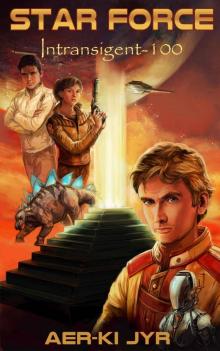 Star Force: Intransigent (SF100) (Star Force Origin Series)
Star Force: Intransigent (SF100) (Star Force Origin Series)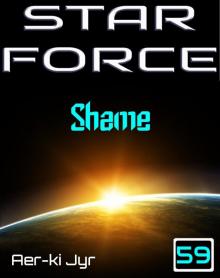 Star Force: Shame (SF59)
Star Force: Shame (SF59)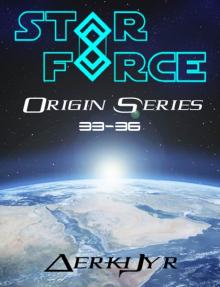 Star Force: Origin Series Box Set (33-36)
Star Force: Origin Series Box Set (33-36) Star Force: Zealot (SF87) (Star Force Origin Series)
Star Force: Zealot (SF87) (Star Force Origin Series)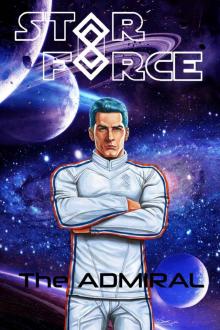 Star Force: The Admiral
Star Force: The Admiral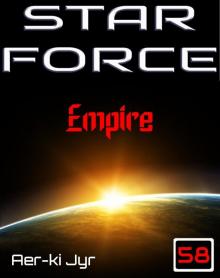 Star Force: Empire (SF58)
Star Force: Empire (SF58)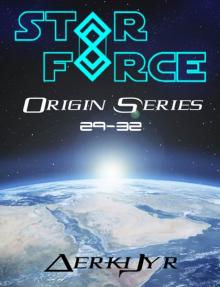 Star Force: Origin Series Box Set (29-32)
Star Force: Origin Series Box Set (29-32) Star Force 82 Hradeiti (SF82) (Star Force Origin Series)
Star Force 82 Hradeiti (SF82) (Star Force Origin Series)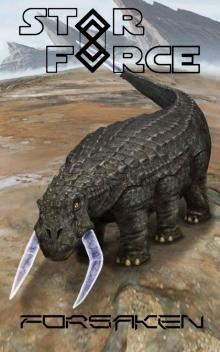 Star Force: Forsaken (Star Force Universe Book 48)
Star Force: Forsaken (Star Force Universe Book 48)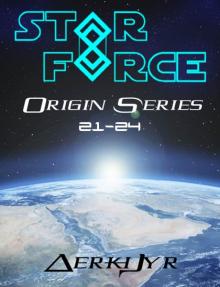 Star Force: Origin Series Box Set (21-24)
Star Force: Origin Series Box Set (21-24)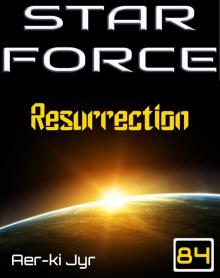 Star Force: Resurrection (SF84) (Star Force Origin Series)
Star Force: Resurrection (SF84) (Star Force Origin Series)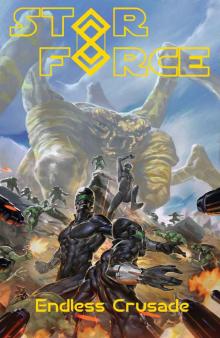 Star Force: Endless Crusade
Star Force: Endless Crusade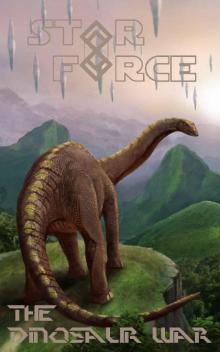 Star Force: The Dinosaur War (Star Force Universe Book 45)
Star Force: The Dinosaur War (Star Force Universe Book 45)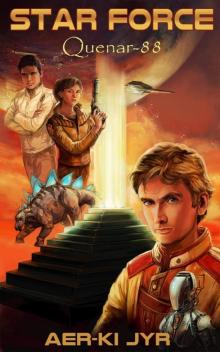 Star Force: Quenar (SF88) (Star Force Origin Series)
Star Force: Quenar (SF88) (Star Force Origin Series)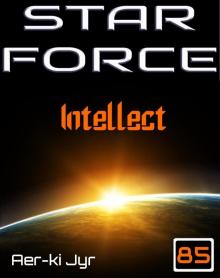 Star Force: Intellect (SF85) (Star Force Origin Series)
Star Force: Intellect (SF85) (Star Force Origin Series)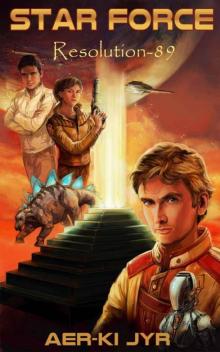 Star Force: Resolution (SF89) (Star Force Origin Series)
Star Force: Resolution (SF89) (Star Force Origin Series)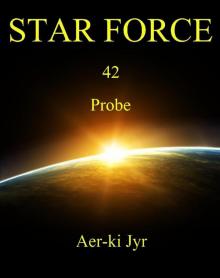 Star Force: Probe (SF42)
Star Force: Probe (SF42)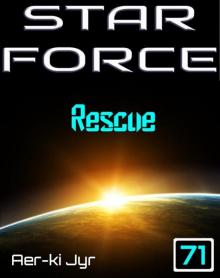 Star Force: Rescue (SF71)
Star Force: Rescue (SF71)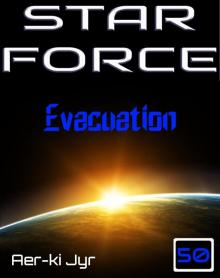 Star Force: Evacuation (SF50)
Star Force: Evacuation (SF50)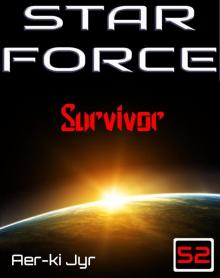 Star Force: Survivor (SF52)
Star Force: Survivor (SF52)